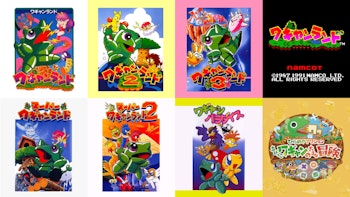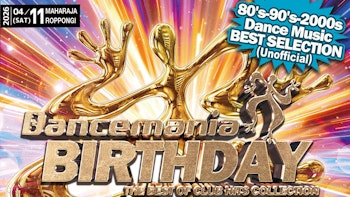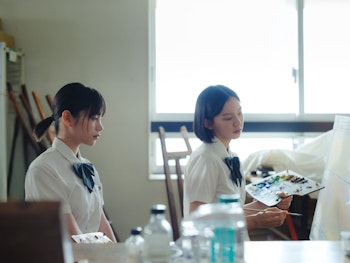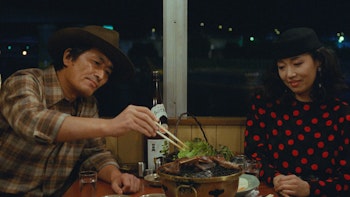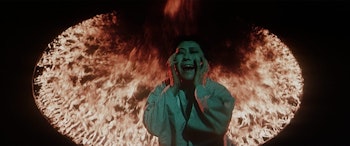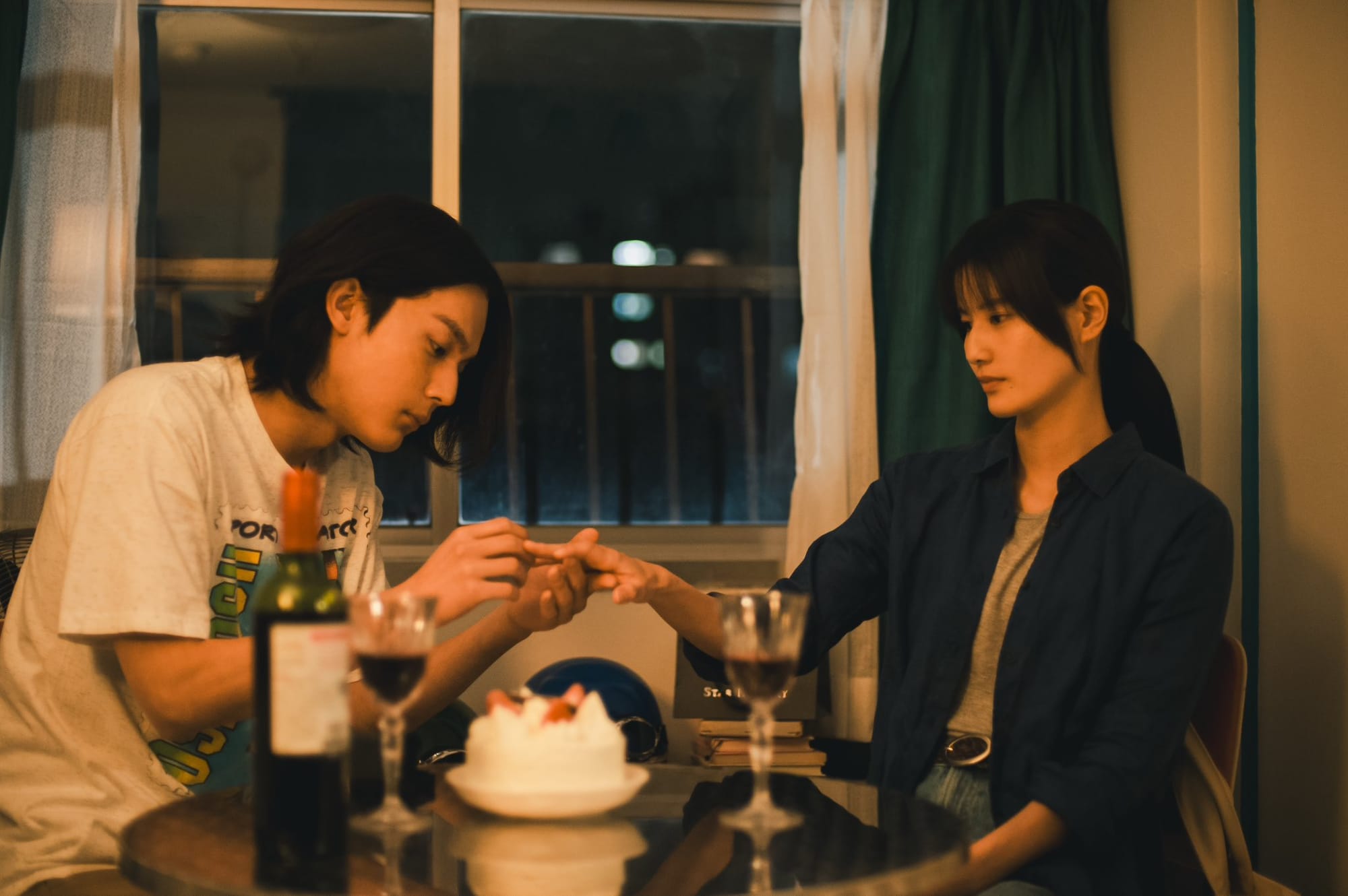
Jean Eustache was a well-known French New Wave Director most recognized for his work on the 1973 film The Mother and the Whore. The great appeal of his work was in straddling a careful line between portraying characters who were bluntly unsympathetic and devoid of sentimentality, yet still placing their hopeless monologues on life as something you can relate with. Characters that reflect deep emotions and impulses, placed in the open where they rarely see the light.
As For Me is a film deeply in love with this director, to the point of attempting to recreate his style within a tale of a doomed university romance. In that effort, it falls far short.
Adapted by from the novel Wasejo, Onna, Otoko by Asako Yuzuki first published in 2015 and directed by Hitoshi Yazaki, the film is a 10-year story of a university love that quickly falls far from the dreamlike promise of such a whirlwind romance due to their vastly-different approaches to life. Nagatsuda (Taishi Nakagawa) makes a strong first impression on Kanako (Ai Hoshimoto) after performing a public acting showcase for the ‘Charing Cross’ movie circle at their university so convincing she thinks he’s truly shot and begs for assistance to save his life.
It’s only once they pass the honeymoon era of their relationship that cracks begin to appear: she fell for his ambitions as a writer, but he can’t and won’t complete a script and has no desire to even graduate from eternal student life, while she seeks a future as an editor. He might even be cheating on her with a new junior, though the fact her work colleague confesses to her and she doesn’t reject the notion hardly makes her an example of morality.
They drift out of their love, but can never truly move from one another. Is the fool the one who wastes their life, or the one who loves them regardless? What’s next, and is there even a future?
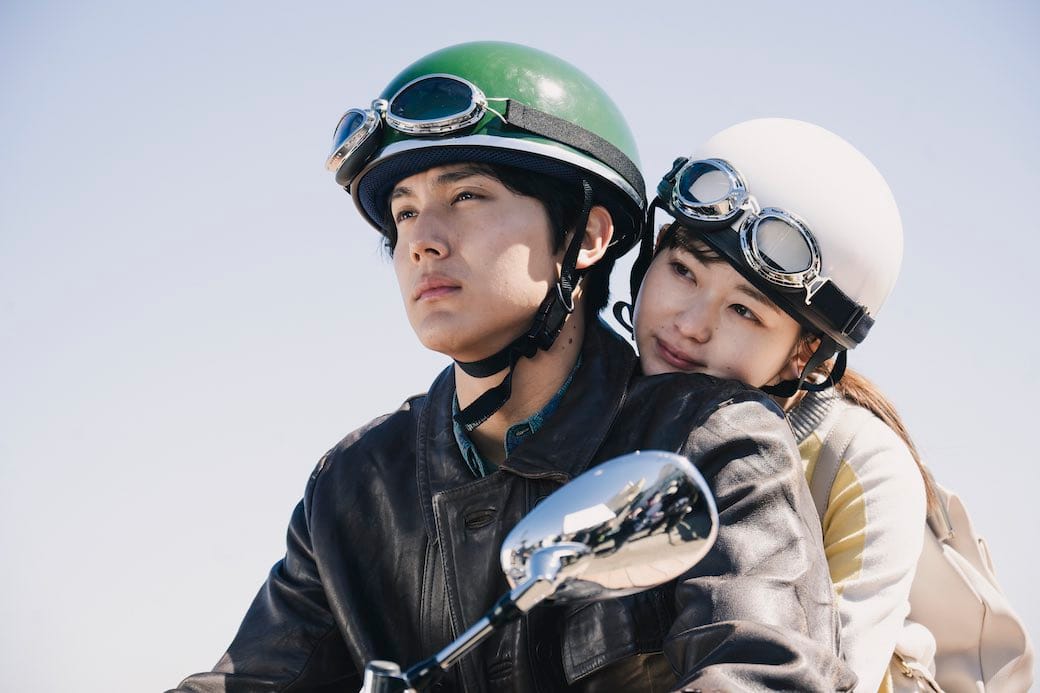
More than a name drop as a favorite director of Nagatsuda, there’s a clear through line between this work and Eustache. A turning point in their relationship can be seen in the early moments of the film, with the pair riding on a motorbike through the streets at night when they spot a pair of matching rings in a jewelry store. Kanako, decides to get them as a birthday present for Nagatsuda, but the gift is gruffly rejected. He should be the one buying it, he’s the man, debt and lack of work be damned. This is the most likable this character acts until the film’s closing moments, an entitled, lazy and egotistical shell lacking the motivation to make his words a reality.
Yet rather than witnessing this self-destructive plight from a space of empathy, a recognition that his pain is merely representative of something we all feel and recognize, it’s hard not to feel a rising sense of anger at his inability to act for himself. A vessel for the human condition becomes loathsome, thus much of the thematic core of the film falls apart.
As opposed from a tension rising between the character’s friction with the audience as we watch a failing romance from a place of hateful relatability, we simply become disinterested when one party is irredeemably reprehensible and the other, while flawed, isn't interesting enough to draw our attention. The delicate balance of Eustache fails to occur.

If there was something else to help us understand why these characters were constantly willing to give each other chances at redemption they never take, it would be able to overcome this unfavorable comparison. Yet we also know so little about the lives of Kanako and Nagatsuda beyond their love that it’s hard to understand their motivations, inside or out of their relationship. They meet in the drama club at university, but we never see this club’ or anything of their life before it all falls apart. When Kanako finds someone new and struggles with her unresolved feelings, this new relationship, and her owns career doubts, we aren’t given a compelling understanding of what brought her into this career choice in the first place.
If we dislike Nagatsuda for his arrogance, we don’t even know Kanako well enough to form an opinion.
Compound this with rather amateurish sound and editing and average cinematography that leaves much of the film feeling unfinished - in more than one scene it felt like the sound mixing was incomplete, while on more than one occasion awkward cuts between takes gave the impression that certain shots were forgotten during the filmmaking process with no time to handle reshoots that could correct these mistakes - and the film is a far cry from the talents who are referenced and supposedly inspired its director and characters.
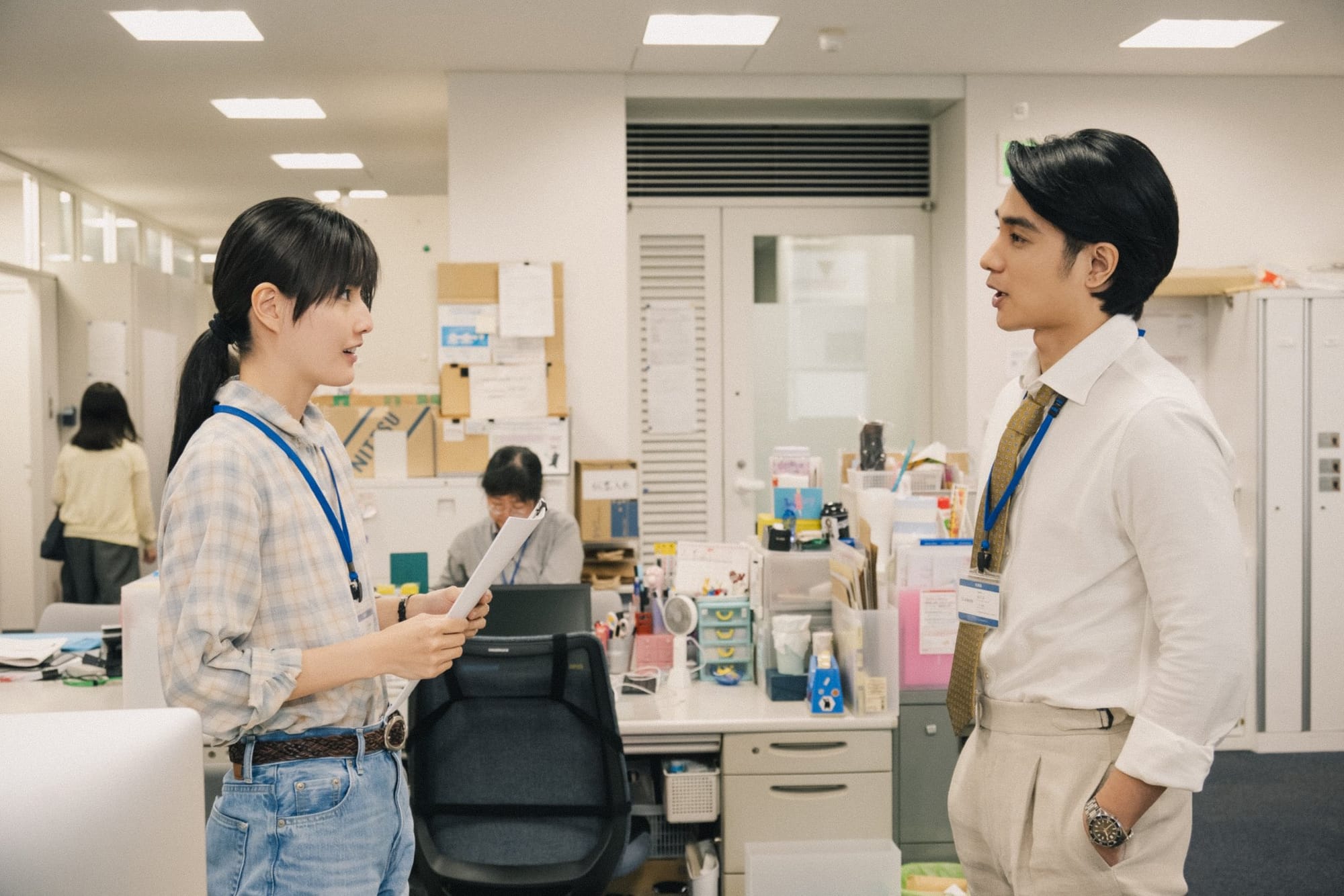
Perhaps most disappointing is that there is potential in this concept to say something meaningful not just about purpose in life, but in finding love for yourself beyond your capacity for a relationship. For all Kanako's flaws she is a young woman that has built a quaint existence for herself: a stable job on an upward trajectory, and after breaking up with Nagatsuda, a relationship you could settle for and find happiness within. You could build a home, have kids, and though it may lack the excitement of that near-death first crush, it’s at least healthier.
At the film’s most compelling we sit with Kanako as she ponders not just her inability to move beyond this first love, as baffling as this is, but what active role she can play in a life that’s increasingly passing her by. Is she simply accepting her fate and her love without considering what else is possible?
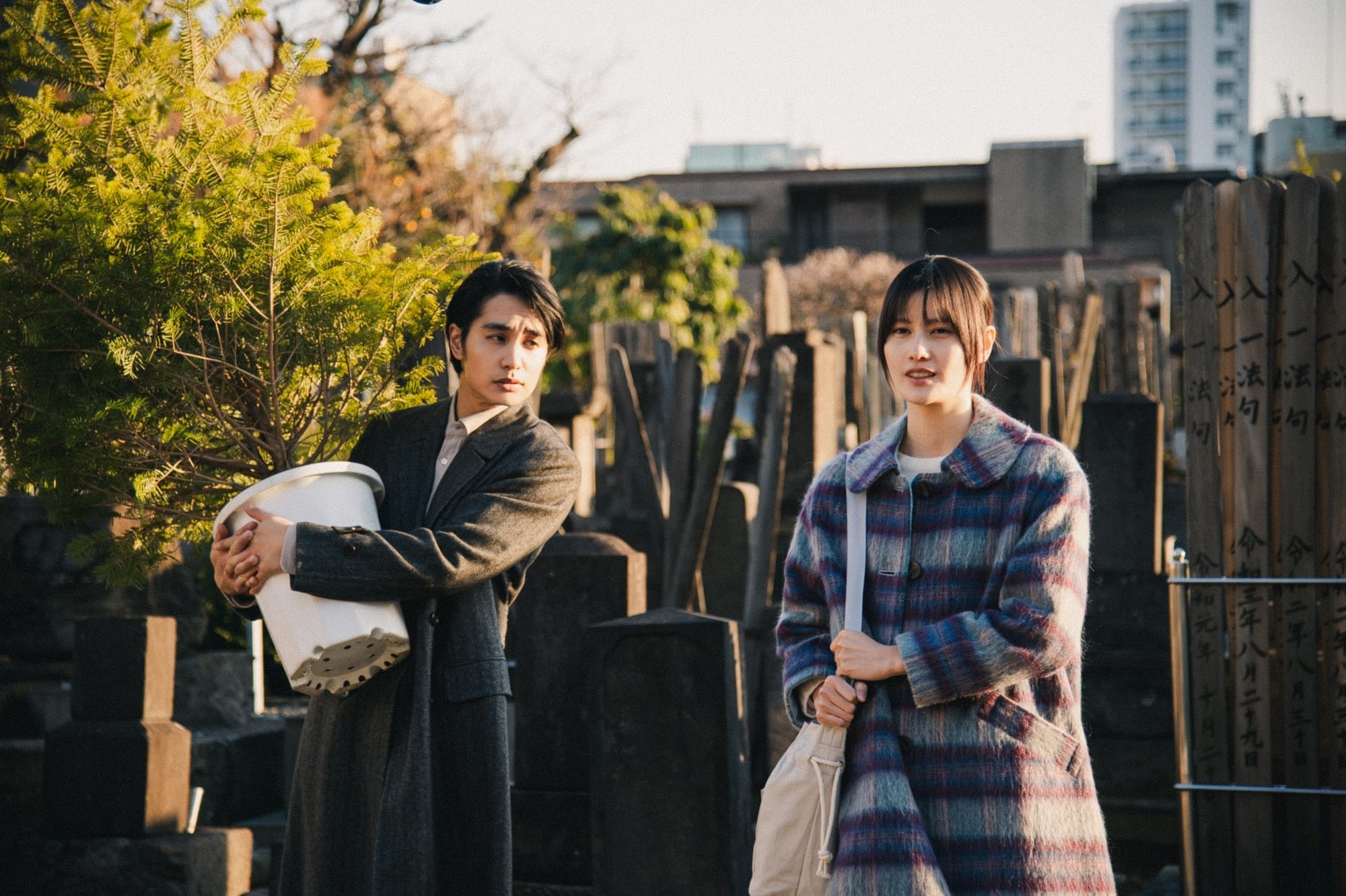
It’s not enough to save the film from tedium, but it’s something. Questioning not just who she should love, but if she should love, and where her life could be if only she removed herself from the shackles of a relationship, is a question often overlooked or dismissed in a cinematic landscape that heavily emphasizes the love story as the natural good ending of any story. Even if a romance movie ends in tragedy, their romance was so strong that their feelings are eternal. The idea of living a life away from the binary decision of who to love barely enters consideration.
In totality, As For Me fails to portray what its favorite director handled with ease in giving its audience complex yet dislikable characters, lacking the moral quandaries or dimensionality necessary to care for their circumstances in spite of their strife. Even if Kanako’s own questions for her future leave us with at least something to ponder, overall this is a movie devoid of a gentle care necessary to charm audiences or leave a lasting impact. Worse than frustrating, the film bores. Kanako may have been unable to forget her past love, but no sooner had I stepped out of the screening that the memories of this love already begun to fade from memory.





